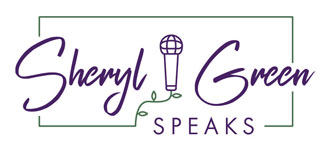You probably wouldn’t start writing a book without knowing what it’s going to be about.
So why would you write a book before you know who your audience is? That’d be like going to the store to buy a Christmas present, but not actually knowing who you’ll be giving it to. (Awww, did I just compare your book to a present?)

Sheryl, my book is so fabulous that my intended audience is everyone.
Well, of course. You are penning the most magnificent manuscript of all time. If they have a heart, the reader will benefit from your masterpiece.
But seriously, if you try to reach everyone, you’ll reach no one. It’s a painful truth.
Even the most widely appealing books aren’t for “everyone”. Determining who will benefit from the wisdom you impart will help you clarify your voice and help make your book more marketable and readable in the long run. In fact if you can picture one one person, your ideal reader, as you go through the process, even better.
Questions to Identify your Ideal Audience
1) Do you already have an audience?
I know this sounds like an obvious question, but if you’re a speaker, trainer or service provider, and you intend to use this book as a back of the room product, a guide for your clients, or a calling card to bring in more business, your audience is already decided. If you want to keep working with this population, go on with your bad self.
2) Does your topic lend itself to a specific audience?
If so, your ideal reader will already be defined for you. If you are writing about the mating habits of sloths (must… not… joke… about… quickies), there are going to be a limited number of people that will want to read your book. If you are writing a book about finding your dream job, you probably won’t be marketing to the senior set.

Hey there, Sailor.
3) Who do you most often resonate with?
Whether you’ve started speaking or working with clients, or your just getting your sea legs, there are probably certain types of people that gravitate towards you. Men or women? More or less educated? Specific age groups? Demographics? Industries? Figure out who likes to hear to you speak and target them.
4) Who are you?
This isn’t a deep philosophical question, so don’t panic. If you wrote a mystery novel with a female protagonist, chances are that you read other mystery novels with female protagonists. If you wrote a personal development book about a healthy mindset, chances are you read other books about a healthy mindset. And if you wrote a book about sloth mating habits… I really hope you’re a zoologist.
Anyway, profile yourself and you may be able to extrapolate who else would enjoy your book.
5) What published books are similar to yours?
This takes the profiling activity even further. Find books in your genre and then use tools like Facebook Audience Insights to learn more about the people who read them. Creepy? Yeah, a little. But every other marketer is doing it so you might as well too.
Once you know who you are talking to, you can interview a sampling of your ideal client and learn the language that they use. You’ll then use these words when you write your book, writing as if you are speaking directly to them. You’ll use it again when you market your book, curing the “pain points” they bring up and coming off like a mind-reading rock star.
Want to learn more about the book writing process? Download my free e-book today.



Recent Comments